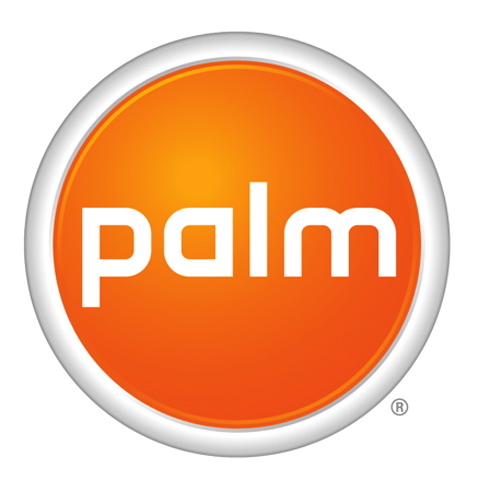
Microsoft's free Security Essentials anti-virus tool goes live
Free anti-virus protection for Windows, in one form or another, has been available for quite some time. In fact, these days it's been used as the virtual equivalent of the retail "doorbuster," enabling security companies to plant their brands on users' systems. It's a strategy pioneered by Ad-Aware and ZoneAlarm (now part of Check Point Systems).
But Microsoft -- at least ostensibly -- is not a security company, and becoming recognized as a security provider at this stage of its history would actually be more difficult than for most other software producers. Still the company has gone forward just hours ago with the live distribution of Security Essentials, its free and basic anti-virus system for Windows.

After thoroughly killing public interest, Garmin sets launch for Nuvifone G60
AT&T announced today that the first handset from navigation company Garmin, the Nuvifone G60, will finally be available on October 4 both in stores and online.
Officially announced at the beginning of 2008, and expected in the third quarter that same year, Garmin's Nuvifone had an extremely strong initial buzz. Unfortunately, the excitement significantly cooled when the device's launch date was pushed back twice.

Q: How essential is Microsoft Security Essentials? A: Does your door have a lock?
Today Microsoft released Security Essentials for free. I've been testing the software for the last month, and I'm nearly at a loss how to really review it. Either the software doesn't really work and my laptop is a malware whore, or Security Essentials works so well you just set it and forget it.
The software has never warned of any malware infection. It works silently and doesn't hog resources -- typically less than 6,000k memory, according to Task Manager. Next to perhaps AVG 8.5, I've never used anti-malware software that asked so little of me or my computer (Read Scott Fulton's take on Security Essentials).

Where America stands in broadband, according to the FCC
The American Recovery and Reinvestment Act of 2009, better known as the "broadband stimulus plan," included the proviso that the Federal Communications Commission (FCC) submit a National Broadband Plan to Congress by February 2010.
With just under five months left before the plan is due before Congress, the FCC today used the results of its 26 broadband-related workshops and hearings and nearly 41,000 pages of comments to describe the current state of broadband and enable Commissioner/public feedback for review.

Windows 7 OEM price even cheaper if you get Vista Upgrade first

Coalition seeks to replace all of Google's closed source Android components
Last week, Google issued a cease and desist order to Android modder Cyanogen, whose popular Android ROM modification was downloaded more than 30,000 times, but included versions of closed source Google applications instead of purely the open source components.
In a blog explanation, Google said, "Unauthorized distribution of this software harms us just like it would any other business, even if it's done with the best of intentions."

Opponents of Windows 7 IE plan label browser ballot screen a 'threat'
In a complete reversal of roles for at least one of the principal advocates for equal access to Windows Web browsers, an attorney for the European Committee for Interoperable Systems told the European Commission in a statement published by The Wall Street Journal today that he now sees the possible inclusion by Microsoft of a Web browser selection ballot for European users of its upcoming Windows 7 operating system as a threat to those users.
Last July, Microsoft submitted a proposal to the European Commission that it hoped would comply with its demands to unbundle Internet Explorer 8 from Windows 7, and give users a choice of competing browsers. "Nothing in the design and implementation of the Ballot Screen and the presentation of competing Web browsers will express a bias for a Microsoft Web browser or any other Web browser," the proposal reads, "or discourage the user from downloading and installing additional Web browsers via the Ballot Screen and making a Web browser competing with a Microsoft Web browser the default."

No more 'on again:' Palm webOS update does not revive Pre's lost iTunes sync
Palm and Sprint today began rolling out an over-the-air update for the Palm Pre's webOS. While version 1.2 includes a number of noteworthy improvements, the iTunes sync feature broken by Apple's update to iTunes 9 was not fixed, summarily ending the cat and mouse game between Palm and Apple.
Many were anticipating iTunes syncability to return with the webOS 1.2 update, but an intervention from the USB Implementers Forum (USB-IF) may have ultimately caused the end of the feature in the Pre. Palm had originally contacted USB-IF to report Apple for improperly using its own Vendor ID to specifically block the Pre, but the Forum saw Palm as the guilty party.

The utility pole dilemma: 21st century broadband faces a 19th century hurdle
If the Federal Communications Commission is serious about wanting to be the regulator of record for net neutrality -- which the FCC defines as guaranteeing the right of equal access -- then it will have to deal with an issue that Congress once tabled in order that the country could fight World War I: In the ultimate example of turnabout-as-fair-play, four of the nation's largest private utility companies are borrowing the newly re-forged principle of net neutrality to argue that they should not be forced by law to charge cable TV broadband and VoIP service providers a lower rate for stringing their equipment on their utility poles, than they charge other utility and telephone companies.
All things being equal, in other words, if a CATV provider should not be allowed to offer content providers discounts for heavy traffic on its pipelines, then a utility provider should not be forced to offer access to its poles -- the pipelines for the pipelines -- to CATV providers for discounts. Currently, a provision in the Telecommunications Act of 1996 ensures that CATV providers get about a one-third discount over market rates for other utilities and telephone companies.

Labels and studios could have access to your YouTube metrics
YouTube Insight really is an amazing free tool. For users who have uploaded content to Google's popular video sharing site, YouTube Insight provides extremely concise metrics for a video's viewership. It includes maps that show where in the world your video has the most viewers, your audience's demographic makeup, and even a second-by-second audience attention metric.
Today, Google announced that YouTube Insight has been tied into YouTube's Content ID, the management tool that lets broadcasters, studios, labels, and individual copyright holders to identify videos uploaded to YouTube containing their intellectual property.

Orange to bring iPhone to UK, a majority of Apple's global presence
French wireless carrier Orange announced this morning that it will become the UK's second network to offer Apple's iPhone later this year, ending O2's two-year exclusivity on the line of smartphones.
O2, a subsidiary of Spanish operator Telefonica, secured a last minute deal with Apple for the iPhone in 2007, beating T-Mobile, Orange, and Vodafone for an exclusive contract.

McAfee makes strides in the DRM business with Adobe partnership
On the surface, it might seem that a company whose principal business is malware detection and eradication would eschew the thought of associating itself directly with digital rights management technology. But the job of protecting one's assets in an enterprise setting, more than ever before, directly involves being able to identify to whom an asset belongs.
For that reason -- among some others, as you'll see in a moment -- commercial anti-malware software provider McAfee this morning announced its partnership with Adobe for the distribution of data loss prevention (DLP) technology. DLP is a more politically correct, socially conscious phrase for the category of software that protects data against theft and misuse. In a way, DLP leverages much of the existing technology base that McAfee had already built up for itself for malware detection, including critical patents for data file fingerprinting including this one. Ostensibly, such a patent refers to the ability for an anti-malware program to detect infected files within encrypted and packed structures, especially when the encryption can almost completely obfuscate a Trojan file's signature.

Zune HD: The best portable media player you may never buy
On Friday, I bought a Zune HD 32, so that you wouldn't have to.
On Monday, I may return it.

Google Voice controversy continues with melee between AT&T and Google
In light of the coming revision to the United States' regulations on net neutrality, AT&T contacted the FCC Wireline Competition Bureau with a letter today which said that Google --"one of the most noisome trumpeters of so-called 'net neutrality' regulation"-- is violating the very net neutrality rules it claims to support.
But since Google is not a network operator, it is not subject to the same regulation that a company like AT&T is. Robert Quinn, AT&T's senior vice president for federal regulations used today's letter to the FCC to make the case that Google Voice should be.

Inside Office Web Apps: Is it good enough to be called 'Excel?'
Most businesses I know stopped calling the class of documents that Excel produces a "spreadsheet" long ago, and have deferred to the phrase "Excel sheet," rather than to Microsoft's preferred "workbook." The reason is because the types of data the application now works with have ceased to be exclusively flat and bordered. Excel data is complex, often relational, certainly networked.
So already there's going to be a big distinction that limits anything that portends to be the Excel Web App from being the complete Microsoft Excel. You don't want to bring networked, dynamic, data that's interlinked to data elsewhere in the world, onto the public platform; there are too many risks involved. If you have a complex Excel workbook on your home or business system now where the source of your data lies outside the workbook, don't expect to be able to use it on the Excel Web App.



